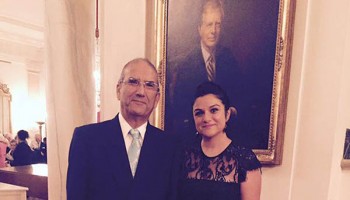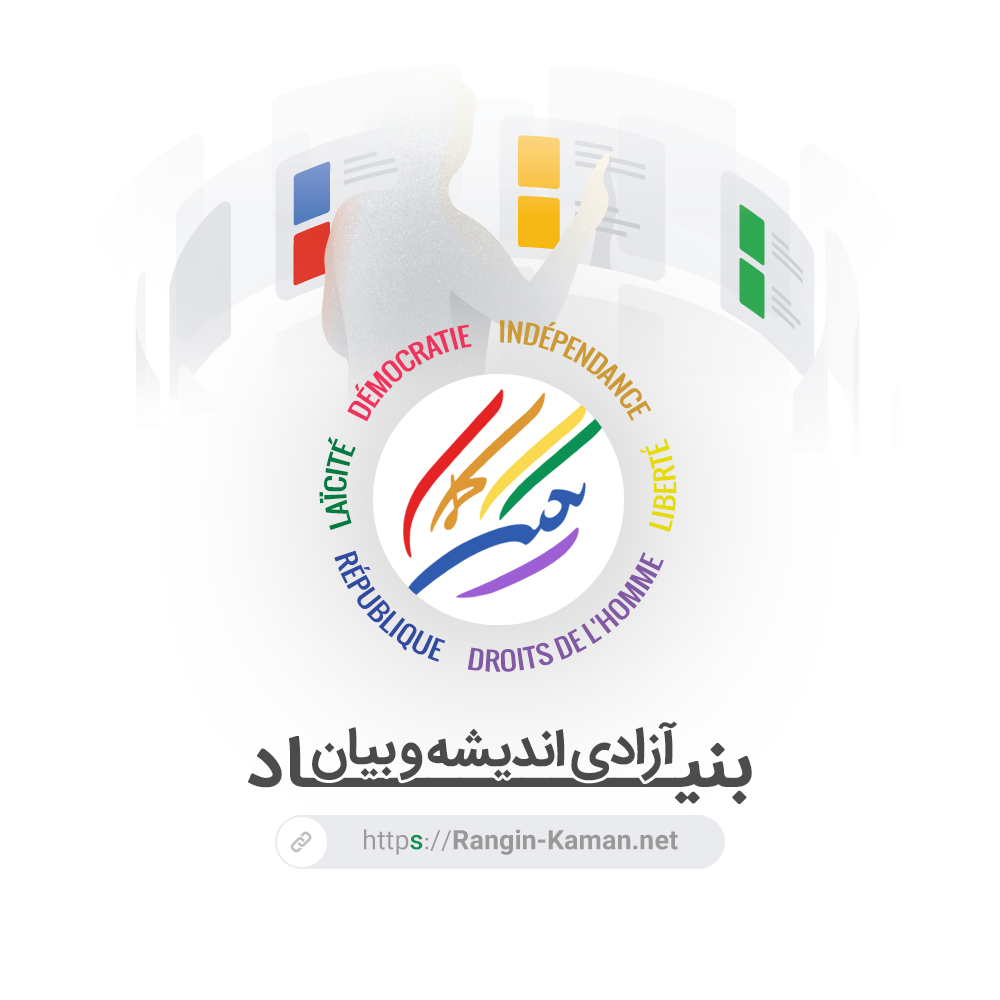
در پنج ساعتی که در کأخ سفید، همراه با ١۴٨ میهمان دیگر حضور داشتم، تمامی، إحساسی دوگانه داشتم. هم شاد بودم و هم غمگین! هم اشک شوق و هم أشک غم!
شاد، از این که ندا را در کنار شخصیت های هنری آمریکا میدیدم و این که در یک جامعه آزاد چگونه استعدادها شناسایی و برای پیشبرد جامعه مورد تشویق قرار میگیرند، و غمگین از اینکه، در سر زمینم ایران، بر جوانان و استعدادها و …چه میگذرد!!!
برنامه آن شب در هشتم ژانویه ٢٠١۶ از تلویزیون Public TV رسانه ای میشود.
متن زیرین، سخنان اوباما در این برنامه بود.
Update:
REMARKS BY THE PRESIDENT
AT IN PERFORMANCE AT THE WHITE HOUSE: A CELEBRATION OF AMERICAN CREATIVITY
East Room
7:47 P.M. EDT
THE PRESIDENT: Well, good evening, everybody.
AUDIENCE: Good evening.
THE PRESIDENT: Welcome to the White House. You all look very sharp. (Laughter.)
Tonight, we honor the 50th anniversary of the National Endowment for the Arts and the Humanities with a celebration of one of our most precious gifts: American creativity.
I want to begin by thanking tonight’s performers. We have an unbelievable lineup. Ms. Carol Burnett. Buddy Guy. Queen Latifah. MC Lyte. Audra McDonald. Brian Stokes Mitchell. Keb’ Mo’. Smokey Robinson, and Trombone Shorty. Esperanza Spalding. James Taylor. Usher. This is an eclectic bunch. (Laughter.)
But that’s what tonight is all about. In 1965, a year that President Lyndon Johnson signed into law some of America’s most important achievements -– Medicare and Medicaid, the Voting Rights Act, the Immigration Act -– he also signed a law creating the National Endowment of the Arts and the Humanities. And he did this because he believed in a Great Society that, in his words, “serves not only the needs of the body and the demands of commerce, but the desire for beauty and the hunger for community.”
Creativity. It’s always played a central role in the life of our nation. It is our artists who hold up a mirror to our society, reminding us of our common purpose and our collective obligations. Our music in particular has always been an honest reflection of who we really are — a reflection of our successes and our shortcomings; of our diversity, our imagination, our restlessness; of our stubborn insistence on blending the old with the new, tradition with experimentation.
We have lofty expectations of ourselves, but we don’t often do lofty in our music. American music is grounded in the stories of real people living real lives, telling their stories. Whether jazz or blues, country or rock and roll, Broadway or hip-hop, it’s rooted in records of slavery and segregation, Dust Bowl and Depression, winning wars and coming home, working and losing that proud factory job; tales of hometowns and the ‘hood; always tales of falling in love and having your heart broken.
In America, we turn life into lyrics. “Listen to the lyrics,” Buddy Guy once said. “We‘re singing about everyday life: rich people trying to keep money, poor people trying to get it, and everyone having trouble with their husband or wife!” (Laughter.) Except me. (Applause.)
By the way, people sometimes ask me what the biggest perk of being President is. Number one is the plane. (Laughter.) Number two is Buddy Guy comes here all the time to my house with his guitar. (Laughter.) And then Esperanza brings her bass and stuff happens around here. (Laughter.)
But that quintessentially American creative spirit -– sowed in our own soil, defined by our own experience, flavored by each new wave of immigrants that reaches our shores –- that may be our greatest export: the American soundtrack. To believe that, you’ve just got to watch the way that people around the world who weren’t born in the U.S.A. fall in love with it. It gives you a sense of the chords we touch through our music, through our art, through our creativity.
And that’s what you’ll hear tonight, across performances and genres — a road trip through a sprawling map of American music. You’ll hear it in the “12-bar, bent-note melody” of Chicago blues and Delta blues. In New Orleans jazz and Nashville country. In the Motown of Detroit and the show tunes that gave Broadway its lights. And you’ll hear it, loudly, in the rock & roll and hip-hop that parents keep telling their kids to turn down –- until, then, we become the parents.
America. That is who we are. And somewhere out there right now is the next Esperanza Spalding picking up her first bass, or the next Audra McDonald singing into her hairbrush; the next James Taylor strumming his first chords.
It might not sound so good yet. They’re still learning how to play; maybe they’re annoying their neighbors. They might not have quite enough experience for the depth of lyrics that you’ll hear tonight. But music has taken hold of their souls. And our task is to make sure that no matter who they are or where they come from or what they look like or what their story is, this country is one that cultivates their talent and gives them the chance to tell it. That’s got to be true from school music programs to the National Endowments for the Arts and the Humanities. We’ve got to support our artists and celebrate their work, and do our part to ensure that the American creative spirit that has defined us from the very beginning will thrive for generations to come.
So with that, it’s my great pleasure to welcome to our stage our first performer, Keb’ Mo’.


